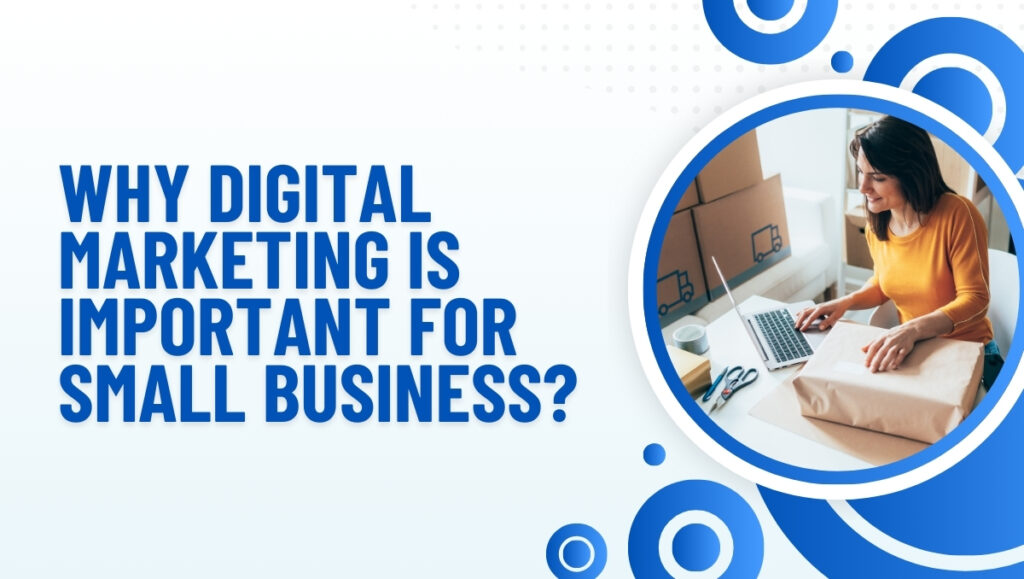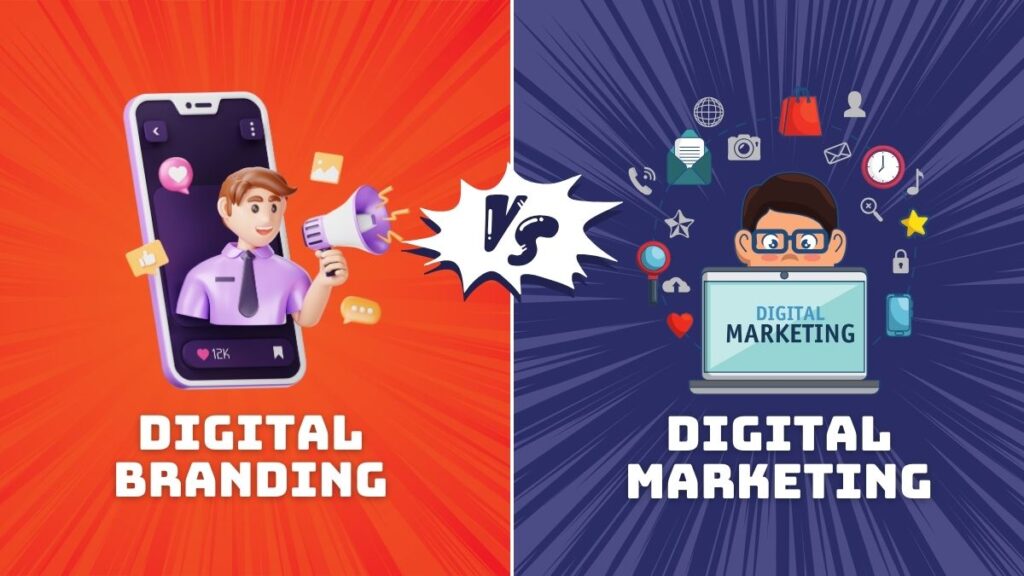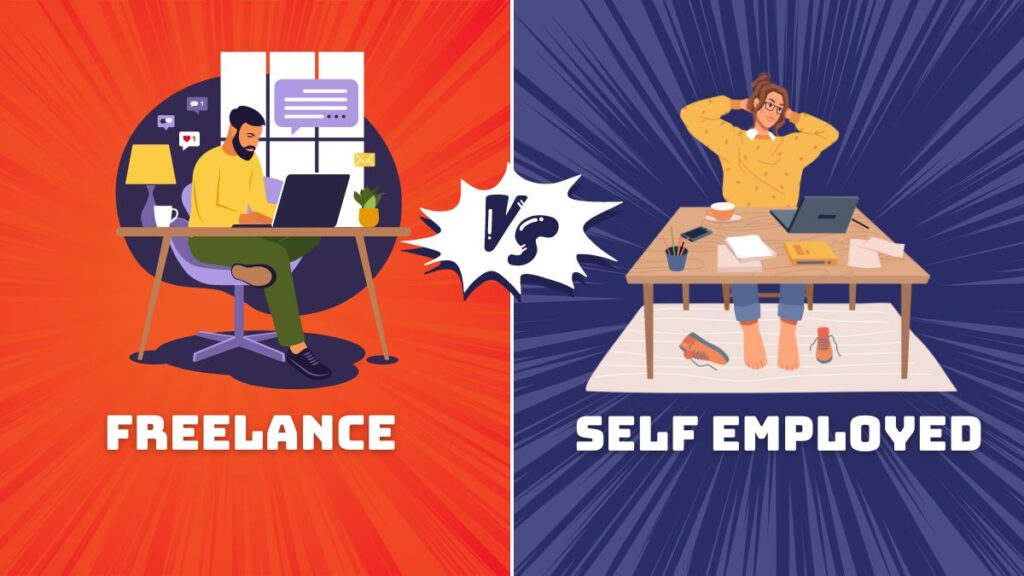Why Digital Marketing is Important for Small Business is easy to see in 2025. These days, it’s not just a nice-to-have—it’s something small businesses really need. A recent Statista report says over 5.35 billion people are using the internet, and more than 4.9 billion are on social media.
Google handles around 8.5 billion searches every day, and a lot of those are people looking for local businesses. If your small business isn’t showing up online, you’re missing out on a huge number of potential customers.
People now spend so much time online. They look up businesses, check reviews, scroll through social media, and click on ads before making a purchase. Traditional marketing just can’t compete with the reach and flexibility that digital marketing offers.
So, why is digital marketing important for small business? Because it helps you get found, connect with your audience, and grow your business in a smart, cost-effective way. Let’s look at how the latest tools and trends are making that easier than ever.
Why Digital Marketing is Important for Small Business?
In a world where every click counts, digital marketing gives small businesses the power to compete, connect with customers, and grow without breaking the bank.
Leveling the Playing Field with Larger Competitors
Gone are the days when small businesses needed a massive marketing budget to compete with industry giants. Thanks to the accessibility of digital tools like Google Ads, Facebook Business Manager, and influencer partnerships, small brands can now target specific audiences with pinpoint accuracy.
In 2024 and moving into 2025, AI-powered marketing tools like ChatGPT, Jasper AI, and HubSpot CRM have made it easier for small business owners to automate campaigns, generate content, and analyze customer behavior without needing a dedicated marketing team.
Tip: Use geo-targeted Facebook or Instagram ads to reach people in your locality with customized offers or event promotions. It’s cheaper and more effective than a billboard!
Enhanced Customer Targeting and Personalization
Why digital marketing is important for small business becomes clearer when you understand the power of data-driven personalization. Today’s customers expect personalized experiences. A McKinsey report from 2024 revealed that 71% of consumers expect companies to deliver personalized interactions, and 76% get frustrated when it doesn’t happen.
Digital marketing tools allow you to segment your audience based on interests, behavior, demographics, and more. Whether it’s personalized email marketing, retargeting ads, or AI chatbots, digital channels provide a scalable way to serve every customer like your only customer.
Use This: Tools like Mailchimp, Klaviyo, or ActiveCampaign allow you to set up automated drip campaigns that nurture leads and convert them into loyal buyers.
Cost-Effective Marketing Strategy
One of the primary reasons why digital marketing is important for small business is its affordability. Unlike traditional print or TV ads, where you pay for eyeballs regardless of their interest, digital marketing allows you to pay only when a user clicks, engages, or converts.
For example, Google Ads’ pay-per-click (PPC) model ensures you’re only paying for genuine interest. Similarly, SEO and content marketing, although slow burners, generate organic traffic over time with little ongoing cost.
Pro Insight: If you’re on a tight budget, start with local SEO—claim your Google My Business listing, get listed on directories like Yelp, and encourage happy customers to leave reviews. These steps boost your online visibility without spending a dime.
Measurable Results and Analytics
With digital marketing, every click, view, and conversion is trackable. Tools like Google Analytics 4, Hotjar, and Meta Business Suite allow you to monitor what works and what doesn’t in real-time.
You can A/B test ad creatives, landing pages, or email subject lines. Want to know which blog post is bringing in the most traffic or which product page converts best? Digital marketing gives you answerscnot guesses.
Track This: Monitor metrics like bounce rate, cost-per-click (CPC), return on ad spend (ROAS), and customer lifetime value (CLV) to refine your marketing strategy.
Builds Strong Brand Awareness and Trust
Today’s consumers buy from brands they know, like, and trust. Social media, blogs, email newsletters, and YouTube are excellent platforms to tell your story, educate your audience, and build relationships over time.
Why digital marketing is important for small business becomes evident when you start building your brand voice across multiple channels. Sharing behind-the-scenes content, customer testimonials, and educational blogs not only boosts visibility but also establishes credibility.
Idea: Use Instagram Reels or Linkdin to introduce your team, show how your products are made, or answer FAQs. Authenticity resonates!
Access to Global Markets
The beauty of digital marketing is that it’s borderless. Even if you’re a small bakery in Pune or a handmade jewelry maker in Jaipur, you can sell your products worldwide using platforms like Shopify, Etsy, or Amazon Handmade—all backed by strong digital campaigns.
Search engines and social media don’t care how big your company is. What matters is the value you provide and how well you communicate it online.
Pro Tip: Translate your content or website into multiple languages using AI tools like DeepL or Weglot to tap into international audiences without hiring translators.
Leveraging the Power of Video Marketing & AI
Video marketing is exploding in 2025. According to Wyzowl’s 2024 report, 91% of businesses use video as a marketing tool, and 89% report a good ROI. Short-form video (under 60 seconds) especially dominates platforms like TikTok, Instagram Reels, and YouTube Shorts.
At the same time, AI is revolutionizing digital marketing for small businesses. Tools like Canva AI, Lumen5, and Adobe Express help you create stunning visual content without hiring a designer. ChatGPT and Jasper can write ad copy, blog posts, and product descriptions in minutes.
Use Video To
Showcase your product in action
Share customer reviews
Host live Q&As
Tell your brand story
Social Proof and Customer Engagement
Social proof like reviews, testimonials, and user-generated content drives conversions. Platforms like Instagram and Facebook allow your happy customers to become brand ambassadors by tagging your business or sharing stories.
This type of peer validation is priceless for small businesses. It builds trust and encourages new customers to try your product or service.
Engagement Idea: Run a monthly giveaway where customers post photos using your product with a branded hashtag. Feature the best ones on your feed!
Real-Time Customer Interaction
With the advent of live chat, AI-powered chatbots, and messenger marketing, small businesses can now interact with potential customers 24/7. Whether it’s answering questions, providing product recommendations, or offering instant support digital marketing makes customer care faster and smarter.
Best Tools for This:
Tidio or Drift for live chat
ManyChat for automated Messenger campaigns
WhatsApp Business API for real-time messaging
Future-Proofing Your Business
As Gen Z and Gen Alpha enter the consumer market, the digital-first behavior will only intensify. These generations don’t respond to print ads or cold calls—they respond to online content, influencer recommendations, and personalized shopping experiences.
The sooner you invest in digital marketing, the more future-ready your business will be.
Looking Ahead:
Invest in voice search optimization
Try influencer marketing, even with micro-influencers
Use AR/VR features (like Instagram filters or virtual try-ons) to enhance user experience
Final Thoughts
There’s no doubt why digital marketing is important for small business. It’s scalable, measurable, cost-effective, and essential in today’s mobile-first, always-online world. Whether you’re just starting out or looking to grow, the right digital marketing strategy can transform your small business into a trusted, recognizable brand.


